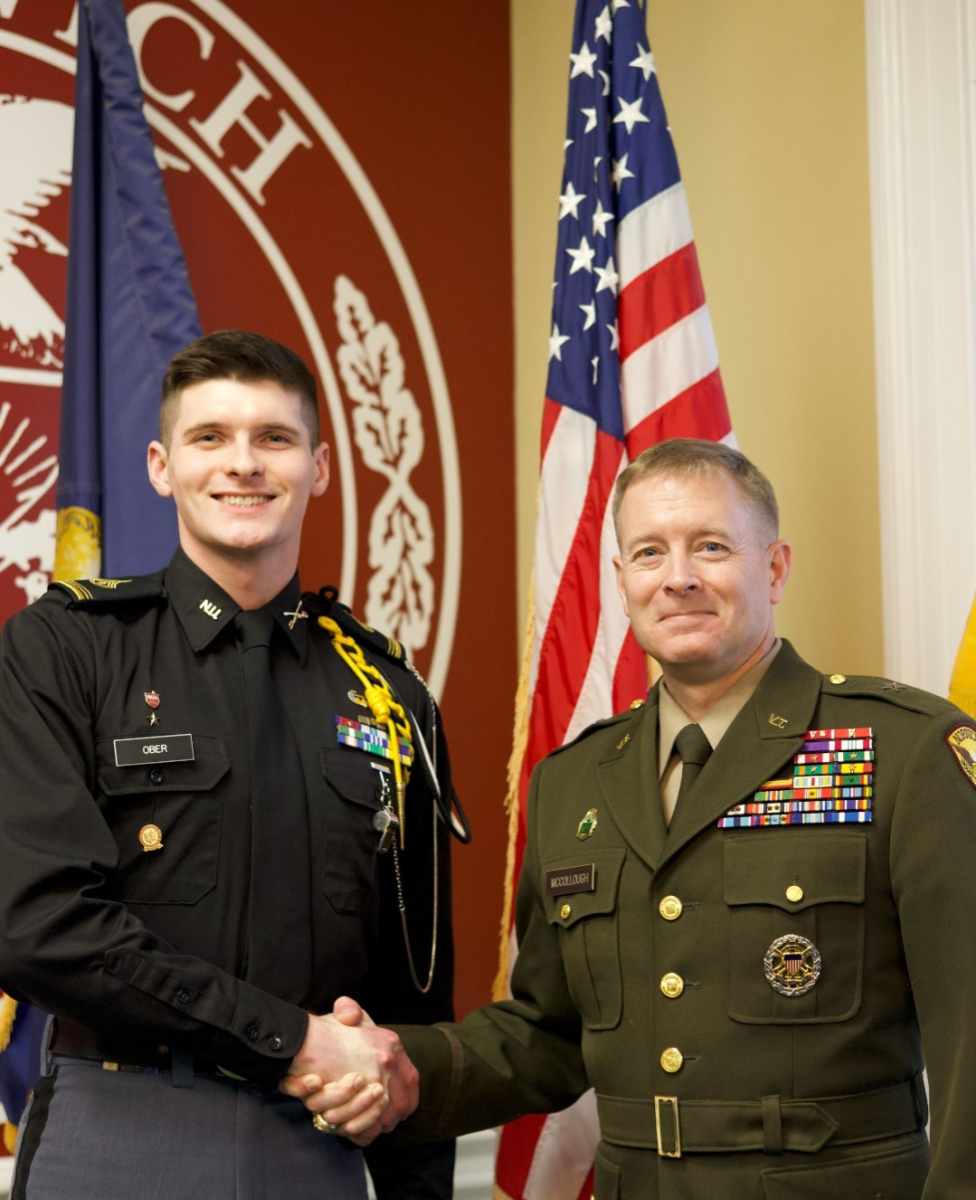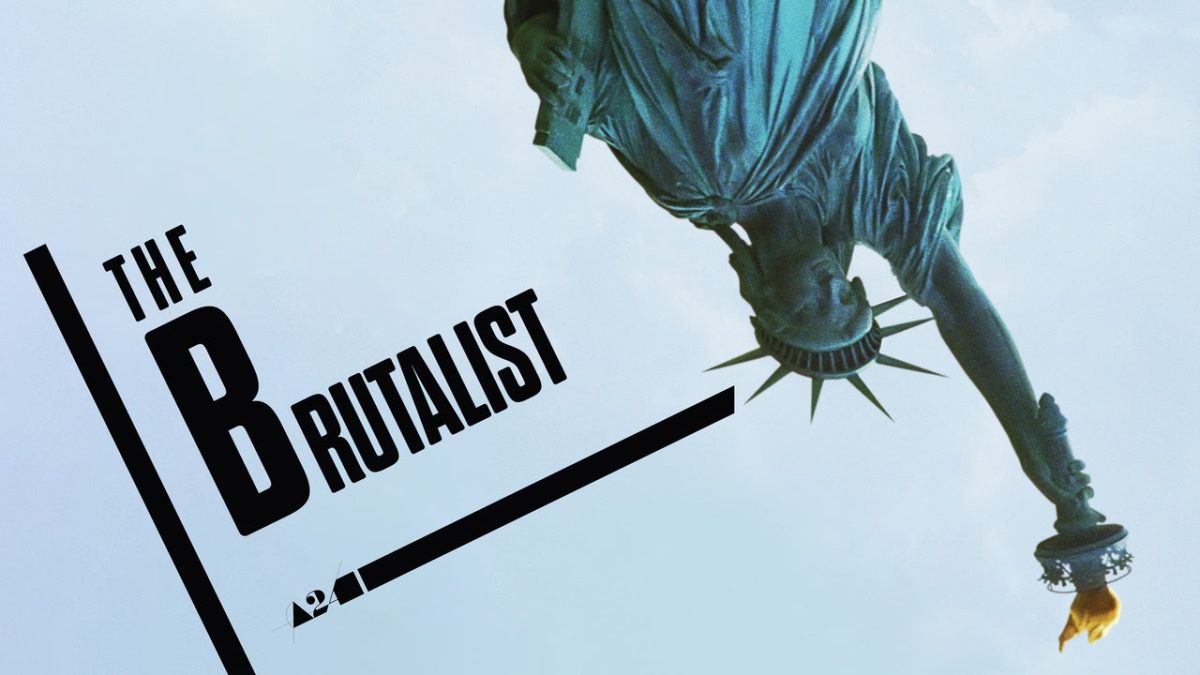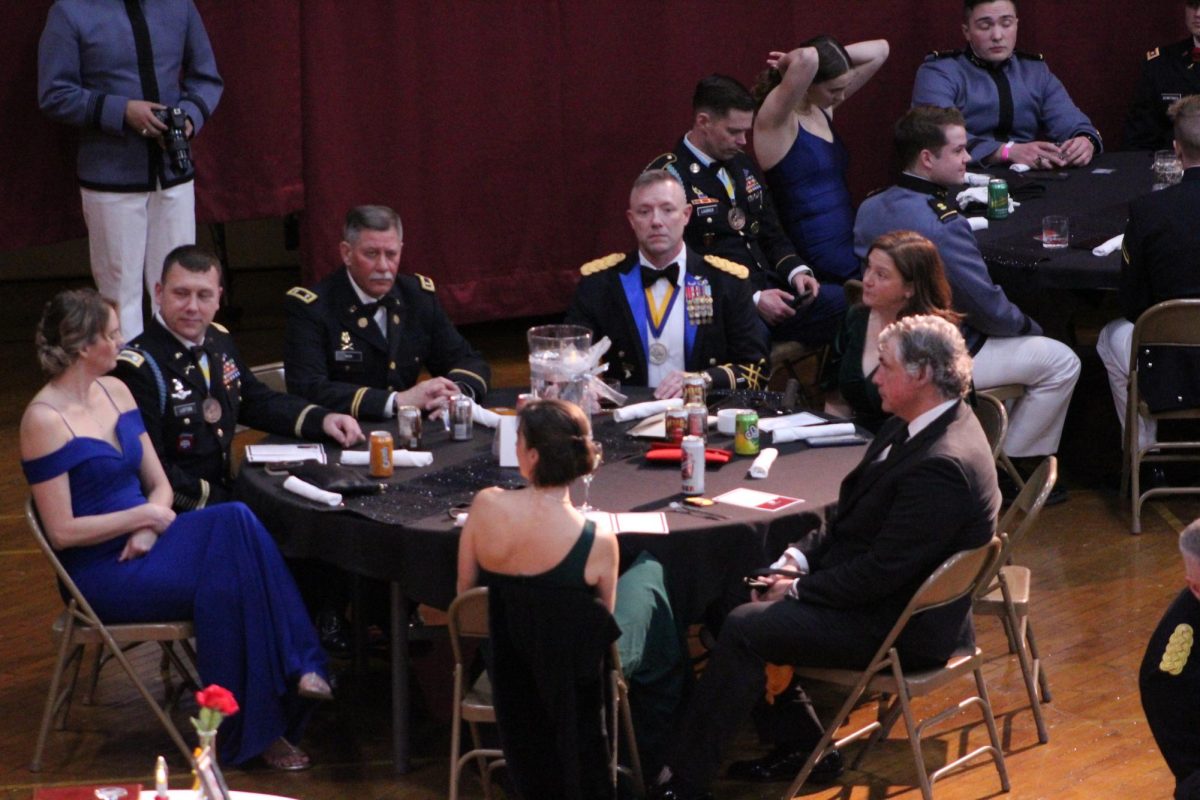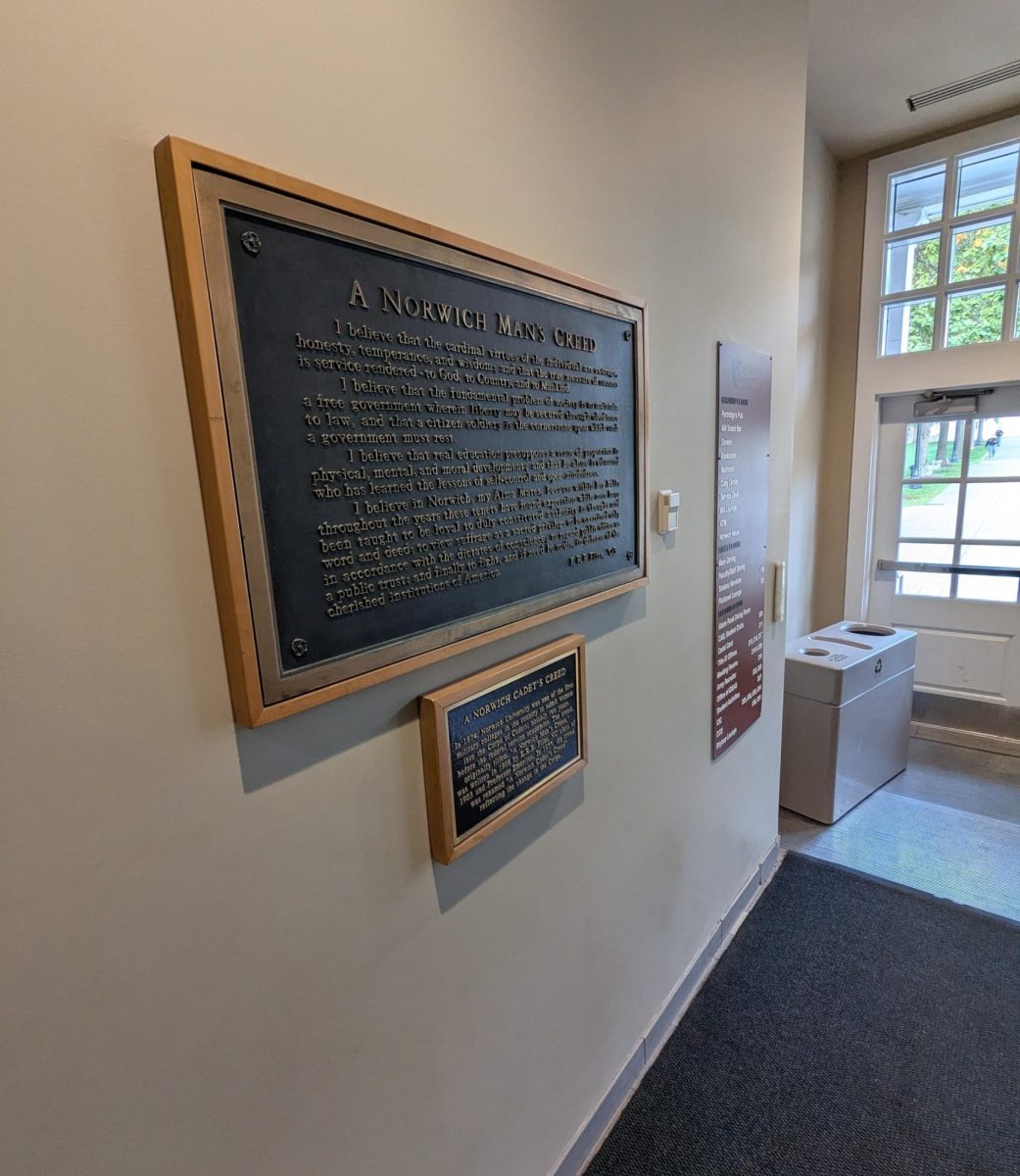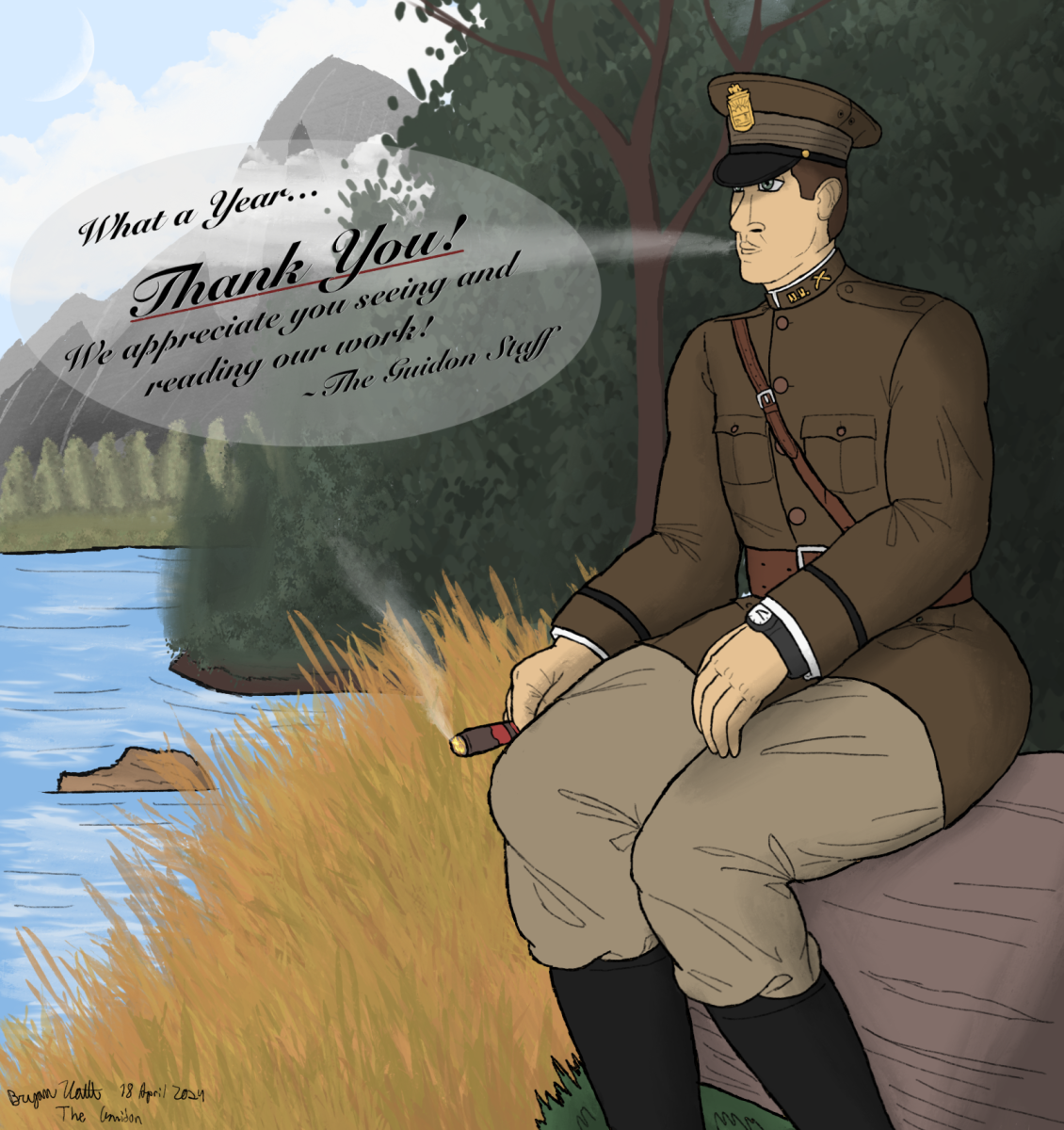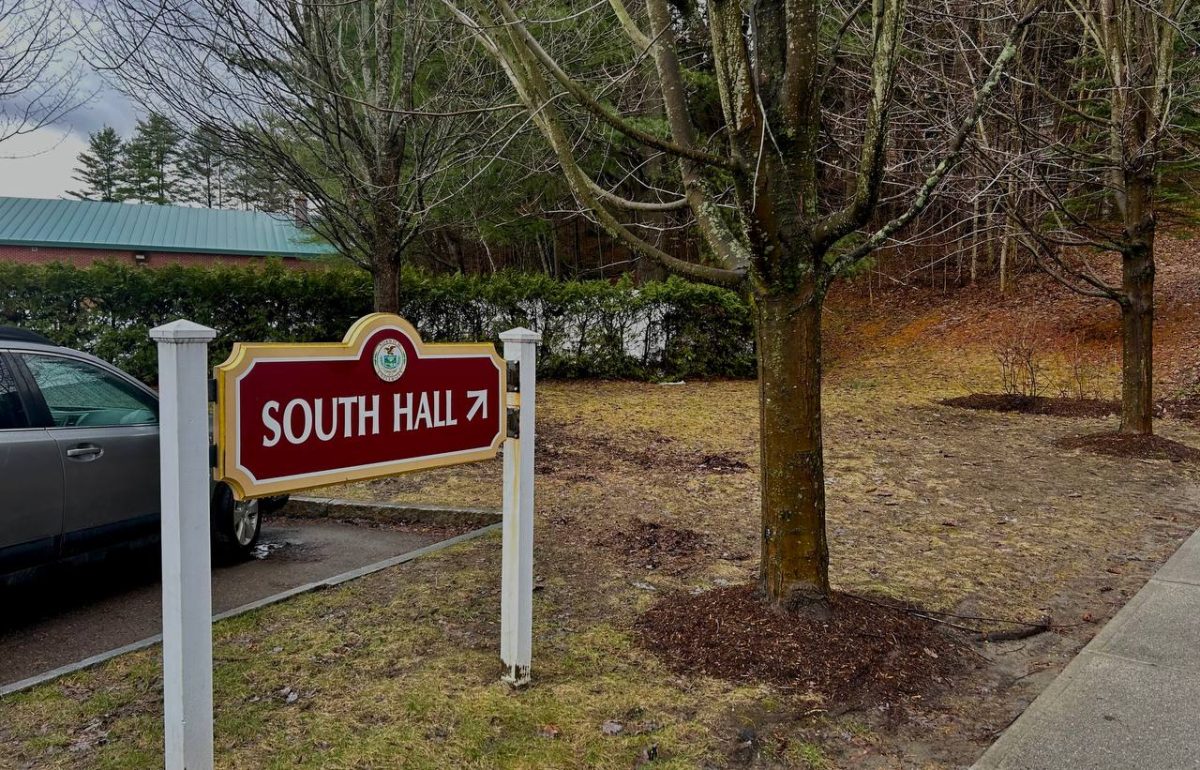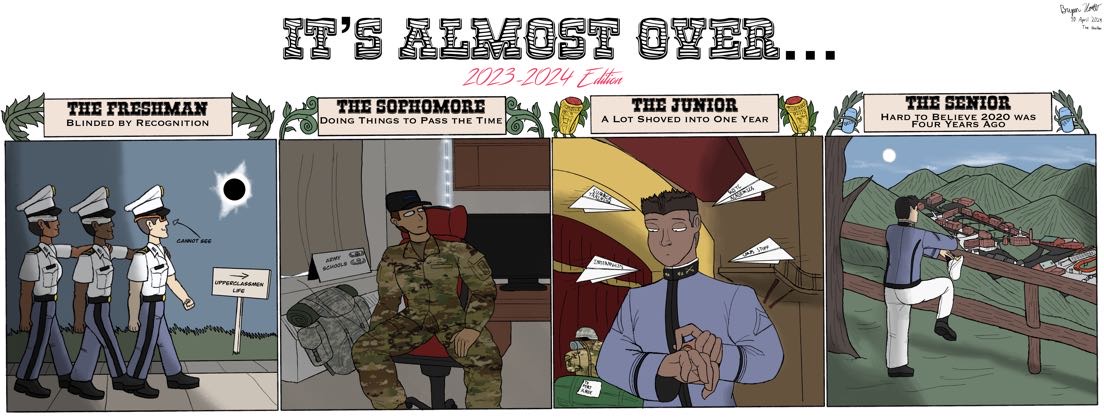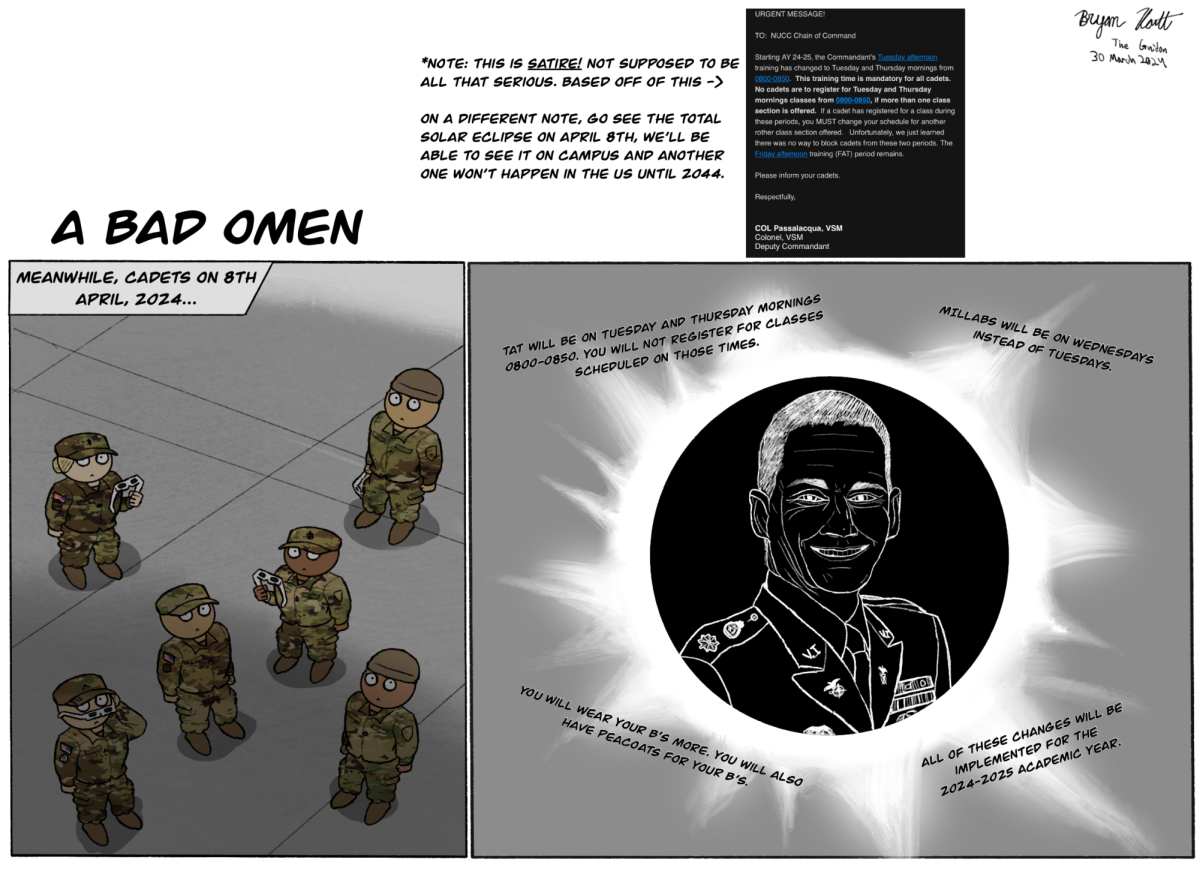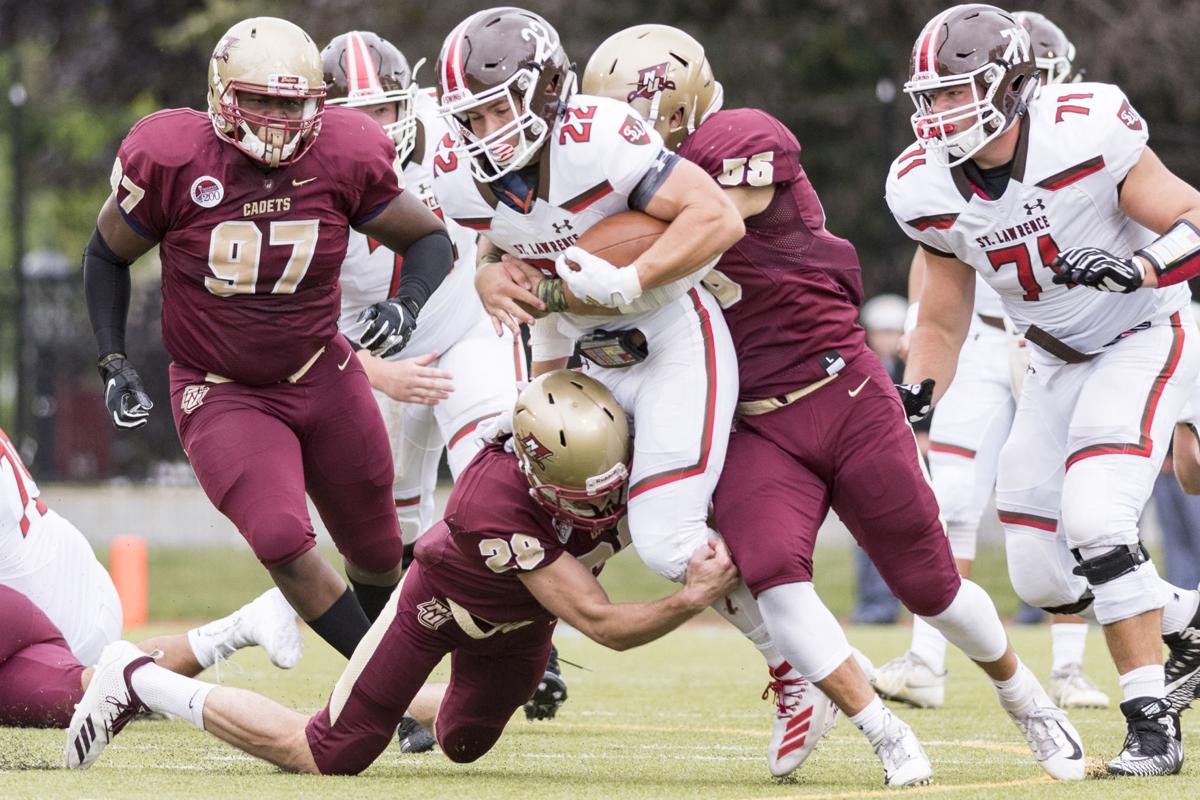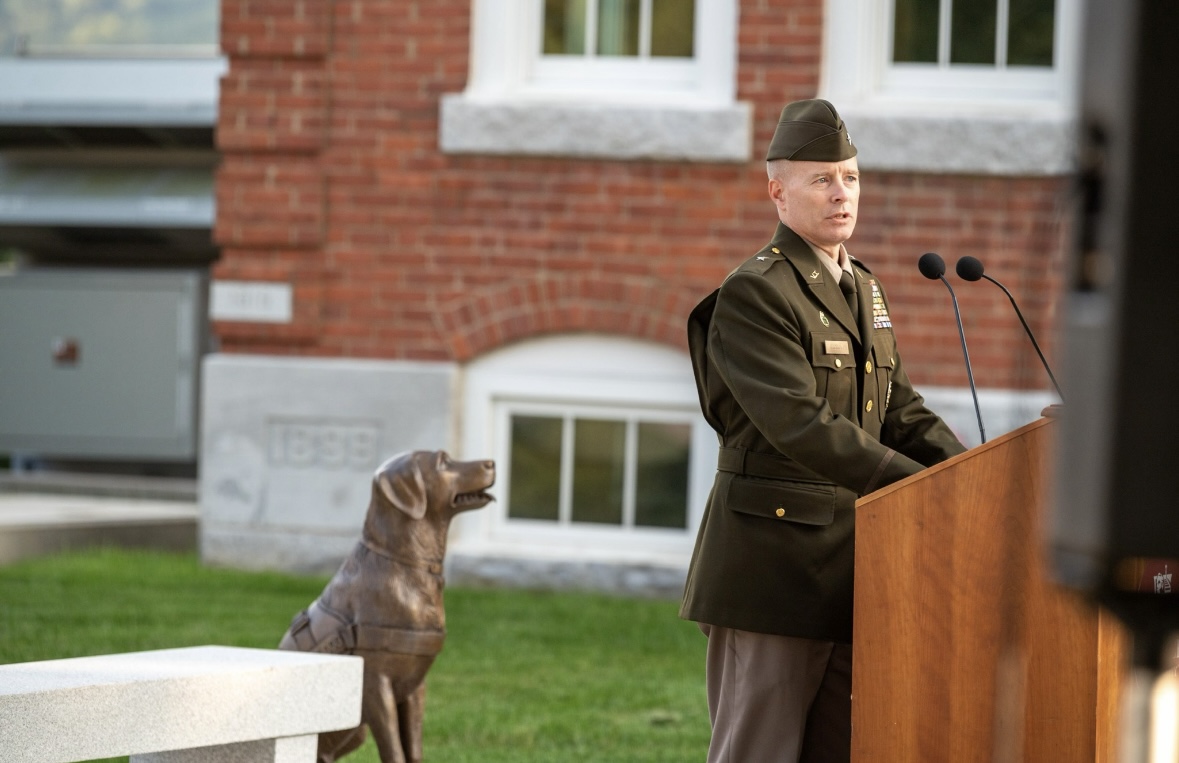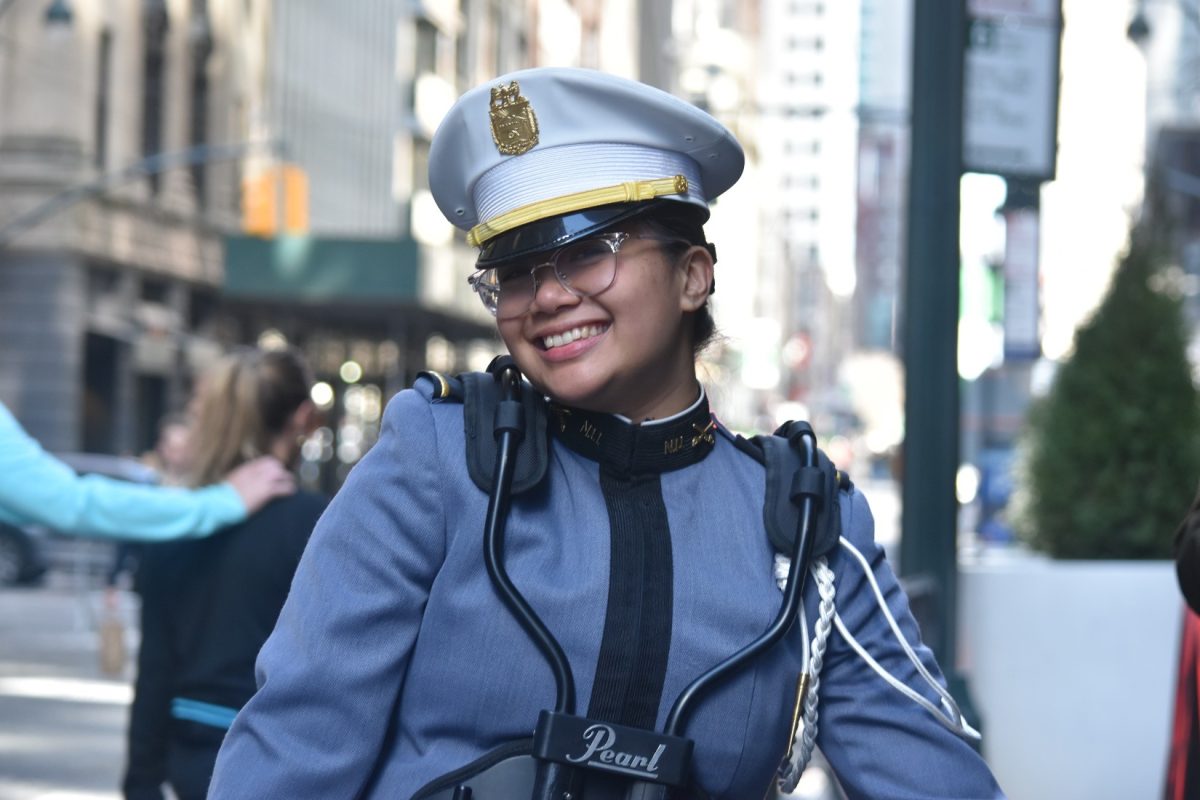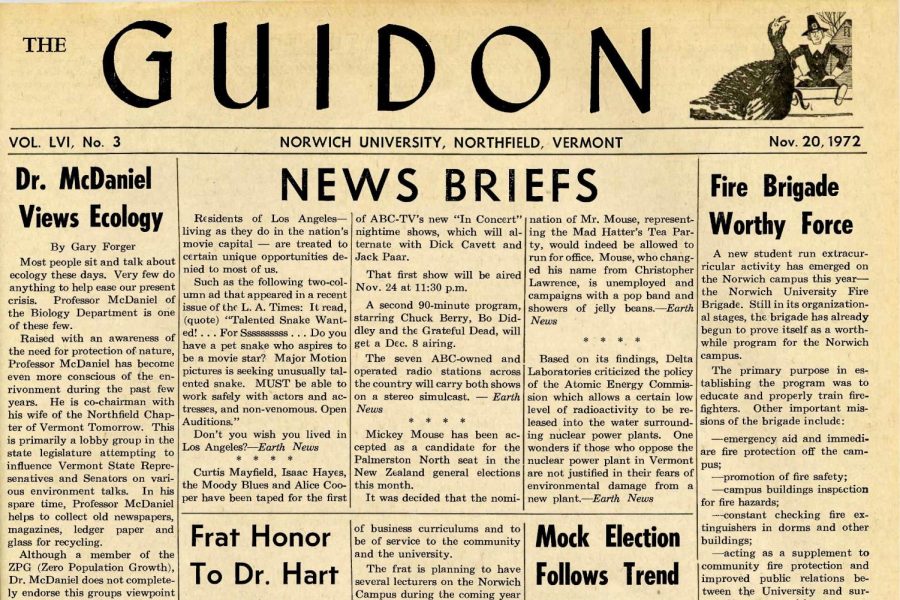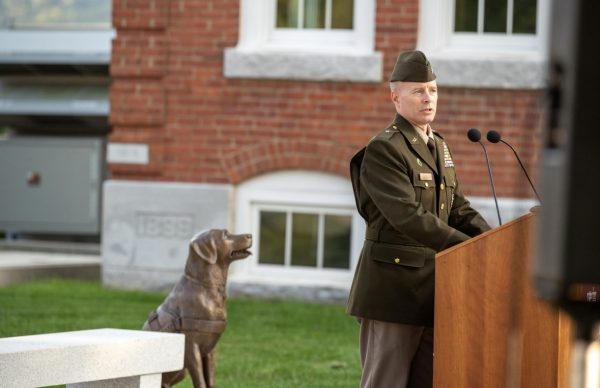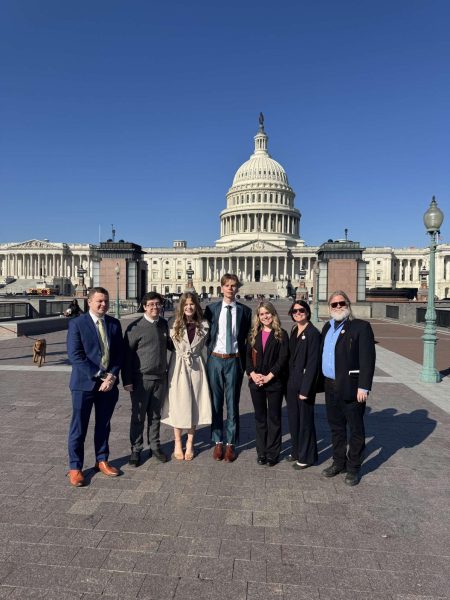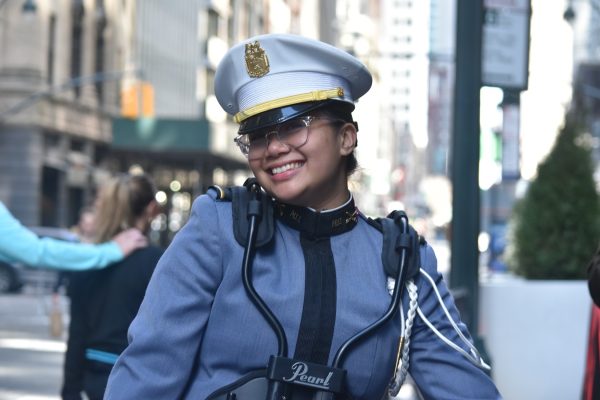Long or short ’tis apathy
50 Years Ago This Month
Reader’s Note: The Guidon will occasionally publish historical stories from our archives. The following editorial appeared in The Guidon, Nov. 3, 1972.
For most upperclassmen in the Corps of Cadets, the regulations concerning the length of hair this year are far too restrictive. We do not intend to advocate one hair length over another in this editorial. This is an opinion too individually isolated to be haggled about here. Instead, the issue is the motives which were utilized to determine the present policy on hair.
This past summer, Colonel Wadsworth addressed a letter to all parents concerning recent decisions as to uniform maintenance, on-campus parking fee, and hair length. In it, he described the hair policy now being enforced.
Everyone understands the rule, and to reiterate it here would be useless. More importantly, the Colonel included, “Granted, this standard is somewhat more conservative than allowed in our Armed Forces today; however, we are training civilian and military leaders for our society—not professional day laborers.”
Is this any more than semantical gymnastics attempting to make the parents feel as if their sons are a cut above any other students at any other university? If the purpose of any college is to train anything but leaders, we question the utility of the education at that particular institution. Obviously not everyone can be the leader. It does seem, though, that a college is designed to at least try to produce such a product.
Apparently the new regulations were motivated by other sources than those aforementioned. No one would be able to claim last year’s policy was anything but ambiguous. A revision of the policy governing hair length was necessary—not a new regulation. Now the interpretation has been replaced by a specified length drastically different from last year. What was the purpose of reducing the length to this extent?
To claim a policy which included any length greater than the present would be unenforcable is wrong. If three inches is so easily enforced, then why wouldn’t any other particular length be?
A rule is only as worthwhile as the cadets responsible to enforce it.
On the other hand, this school year’s length could very possibly be a personal preference of Colonel Wadsworth. Because Colonel Wadsworth is both V .P . and Commandant of Cadets, his right to institute regulations as he sees fit is undeniable. Being cadet colonel, Randy Bauer is in the same sort of position.
Obviously, the cadet leadership had the welfare of the corps in mind when they rewrote the haircut policy as it now exists. However, as we presently understand the situation, it appears the new regulation is a misjudgement on someone’s part.
The corps is engulfed in a cloud of apathy. Apathy is a state of uncaring. The more people are harassed and annoyed, the less faith they have that the system is actually working for them. As one’s feelings of helplessness increases, the less he cares. Consequently, the existing apathy has only been built upon instead of eroded by the haircut policy.
To revitalize the corps, apathy must be removed. Perhaps the best way would be to revise instances such as the present haircut policy which seems to be no more than a disagreeable nuisance to the majority of students. If cadets feel as if they are better able to influence their administration’s decisions, the student’s feeling of manipulation by the system could possibly disappear. If one feels more an influence in the system than just a cog, his interest in the success or failure of the corps as a way of life will be increased. If interest is heightened, apathy can only disappear.
It appears to be time for the regulations of Norwich University to be regarded as more than a means of harrassment. How much longer must the corps wait?—GRF
Your donation will support the student journalists of Norwich University. Your contribution will allow us to purchase equipment and cover our annual website hosting costs.



